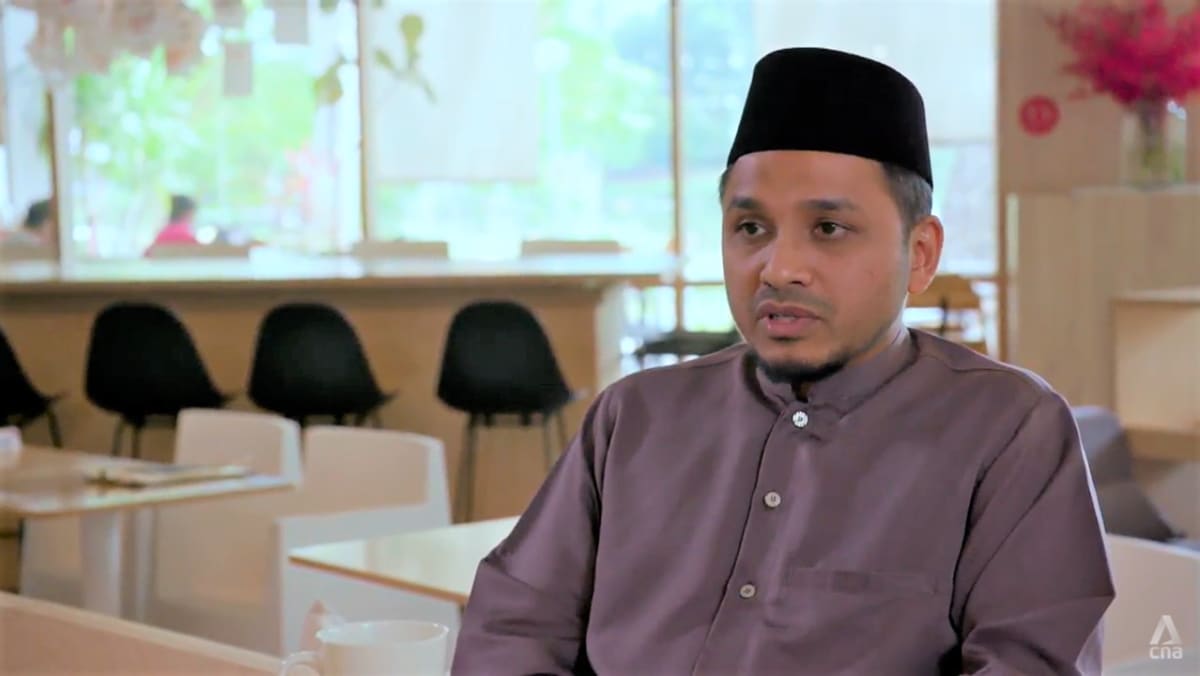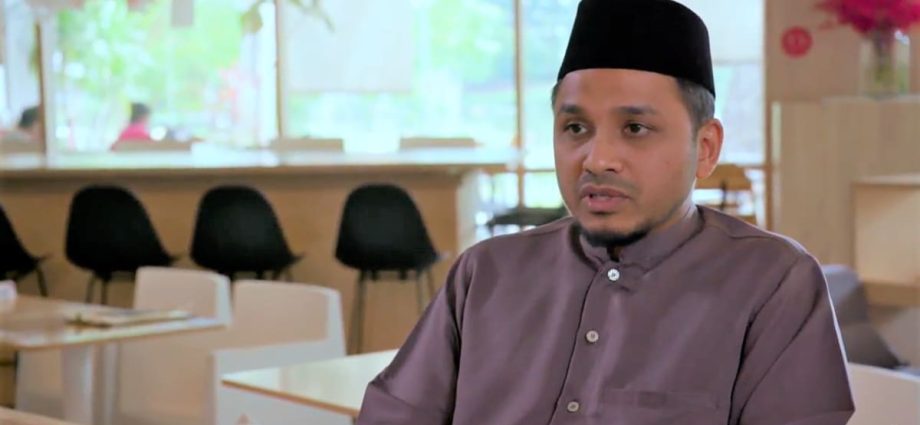
Dr Janil: Did you personally have an intellectual struggle?
Dr Nazirudin: I do, of course. And my particular struggle is again in trying to place values that are taught in my faith. Compassion, empathy, kindness, charity, in the context of what we’re dealing with, with people who hold on to different values, in terms of sexuality, and even the ideas of family and relationships. At the same time to recognise there is a line that has to be drawn at some point between religious authority and individual autonomy.
At some point, our authority stops, and the individual’s autonomy takes over. They have the choice to make their own decisions, guided by the moral conscience and compass. Our role is to provide that moral compass from a religious standpoint. How do we do that? How do we balance it very carefully? And this is for the longer term good of society and the community. I think that is a struggle that continues with me. And I think we are just in the process of starting to talk about it more openly and trying to find what are the best directions ahead.
Dr Janil: Have your views and positions changed as a result of the struggle?
Dr Nazirudin: I think it’s a cardinal rule, in my job and in in issuance of guidance, religious guidance, to really understand and understand correctly and comprehensively what we’re dealing with. And I think that there’s a lot to be, still yet to be understood. So we can’t pretend that we know everything and I think as we move on, certain things will evolve. And our thoughts on this will also mature accordingly.
Dr Janil: You talked about taking time to consult, to gather views. But society and the world can change quite fast. How do you ensure the relevance of religion to that process then if there’s a need to go slow to gather all the views, and yet, the world is changing fast around you?
Dr Nazirudin: If you look at the LGBT issue in other parts of the world, in some countries they are very far ahead on the scale of how they deal with homosexuality and LGBT issues. Some have gone way beyond in terms of gender identity and dealing with those kinds of issues. But at the same time, you also see that in those kinds of societies, the discourse is getting a lot more complicated. In other words, there are counter-movements within the society, because there are new concerns that emerge.
So I think, if anything, it tells us that with this kind of very profound social changes, I think it needs time, in as much as there is a very strong desire for things to move quickly and change quickly, I think we need time to process what is going on around us. We’re not speaking of decades of thinking about issues, but at least you need to think of a thorough, robust and comprehensive process of hearing different voices, to first understand the issues accurately, and then look at your traditions, look at the principles and values and how these relate to those kinds of changes.
Today, we look at the implications, for example of massive industrialisation and the impact on the climate. So we are beginning to ask ourselves very fundamental questions of our duties and responsibilities to the world, to the climate to the environment. And so there is always a kind of a rethink as to what would have been the better approaches in dealing with progress in that sense. And I think this social challenge that we have, social issue that we’re dealing with, it’s also an example of why we should spend enough time to think about it and put forth a response that I think, would at least relate to the challenge and resonate with people in dealing with the challenge and not to take a quite a simplistic approach in the interest of, you know, rushing through things.
And I could be wrong, but I personally feel that it is my responsibility to exhaust all avenues of thinking about issues, and give the issues due consideration before coming up with any particular position. In particular this involves a very fundamental shift in our society.
Dr Janil: But along the way, there are frictions within the community as these matters remain unresolved. I’ve met individuals who say they are gay and Muslim. I’ve met individuals who will say that you can’t be both. One of the individuals that I’ve met says that he’s welcome in the mosque, even though he is known as someone who’s gay. But his friends wonder why he’s allowed in the mosque. How do you deal with and resolve these types of frictions within the community?
Dr Nazirudin: Specifically to the issue of Muslims, I think one of the important aspects of talking about friction is really, what are the sources of friction in these kinds of situations. One of which is that there is still some level of uncertainty for many people on what is the religious attitude towards homosexuals and homosexuality in general. As it relates to religious practice, as it relates to religious spaces. So some may think that you should welcome anyone who comes to the mosque, some others may think that, well, the mosque is not a place for homosexuals, for example. When someone comes to the mosque, what is the first question that we ask and you think of? I think the first question should be that this is a Muslim, who wants to go to the mosque, and get closer to God, have a closer relationship with his or her Creator.
As a Muslim, as a believer, whatever the sexual orientation, which, in most cases, would be a private matter for the individual, is something not for us to question, not for us to judge at the point in which someone comes to the mosque. Otherwise, you would need to ask, and it’s, it’s completely wrong practice. Everyone who comes to the mosque, on their private life, or other aspects of their, of their personal life. And I think that is not the right thing to do as Muslims, and as a religious institution.
So one of the sources of friction is really about understanding the religious position and attitude towards such individuals or segments within the community. And this is something we are working on as well. But the other important thing, insofar as the source of friction, I think, is really because for some people, this is a conflict that needs to be resolved with one winner at the end, whether it’s mainstream Islam or the majority, and that’s almost a kind of a zero-sum game mentality, which I think it’s not the right attitude to adopt in dealing with this kind of complex challenges.
Dr Janil: You talked about not wanting a zero-sum game mentality amongst the people who consider this. Why is that important? Is there a danger that you’re worried about?
Dr Nazirudin: I think it’s because we recognise that for some individuals there have been accounts of their personal struggles of abuse, of ridicule, of rejection, that has led to various types of harm that they have been through and put through.
Dr Janil: Because they’re LGBT?
Dr Nazirudin: Because they’re LGBT. But there’s also the very genuine fear and concern and anxiety within the larger segment of the community insofar as what the future will look like. We share this fear and anxiety. But we are also aware of the hurt and pain that people have gone through, and I don’t think, and especially in our religious institutions, that our role, or what we do, should exacerbate that hurt and pain and prolong it.
Our role is to find ways for people to heal, that hurt and pain to heal. So, if you have a winner, then you have someone who will basically be happy with an outcome in which LGBT individuals, for example, are not allowed to come to the mosque. But then it destroys their faith, it destroys their identity as Muslims, and vice versa, as well.
So I think we need to find ways in which you know, we can meet in between, and recognising that there are aspects of the faith that are very personal and private. There are aspects of the faith that are public. And it’s about managing this, which we have to look into very carefully and find ways. And that would be the next steps that we will need to think of.

